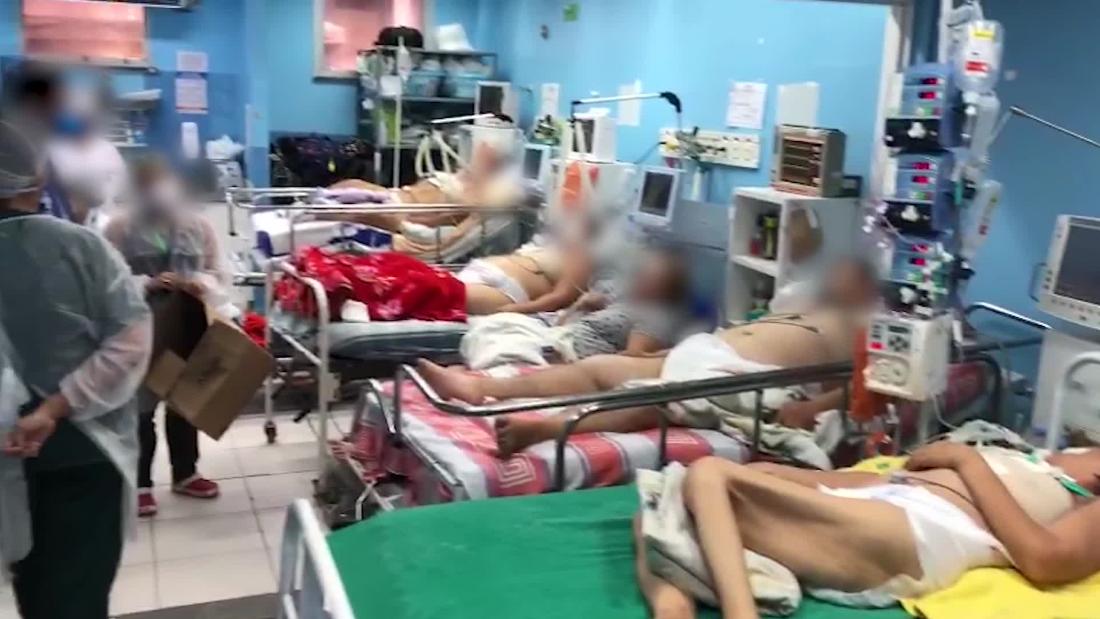“Latin American countries are going to dispute vaccines and medical supplies, regardless of where they come from,” said Parsifal D’Sola, founder and CEO of the Andres Bello Foundation, a think tank dedicated to Sino-Latin American relations. “So far, developed nations have bought more than 50% of the vaccines available, so Latin America is likely to contact China and Russia to fill the void.”
Coronavac, by Chinese Sinovac, is already part of the large distribution in Brazil. Sputnik V vaccines from Russia have been adopted by several countries, including Argentina and Bolivia. But in general, the regional distribution of vaccines is confusing and uneven, without a coordinated approach, and it remains to be seen how the pandemic can shape the future diplomatic relationship between South America and the rest of the world.
This is where your vaccination campaigns are for now:
Argentina
In December, the Aerolineas Argentinas flag tweeted live a special flight to Moscow to catch the first doses, a sign of how close the partnership with Russia in Buenos Aires is.
Argentina has also secured orders from other manufacturers for a total of nearly 50 million doses, according to Duke University’s database of vaccine pre-purchase agreements.
All vaccines distributed so far have been from Russia.
Brazil
In comparison with its neighbors, Brazil has a great capacity to manufacture vaccines. However, experts say the country has lagged behind in the race to buy active ingredients to produce them.
Bolivia
Pending the first doses of COVAX distributed to Bolivia, Arce managed to guarantee at least 20,000 doses of the Russian vaccine, which arrived in Bolivia on January 28.
The purchase signals closer relations with Russia and Argentina, where President Fernandez is a close ally of Arce and his predecessor, Evo Morales.
Chile
Public data from Duke University shows that Chile has pre-purchased vaccines from western manufacturers AstraZeneca, Pfizer and Johnson & Johnson, but the largest order has been placed for China’s Coronavac. China is already Chile’s main economic partner.
Despite requesting more than 90 million doses of vaccines for a population of less than 20 million people, Chile’s vaccination program has not yet gained momentum. Less than 70,000 people have been vaccinated so far.
Colombia
Colombia is the largest country in South America that has not yet started vaccination.
President Ivan Duque responded to critics by saying that the country mainly relied on the COVAX mechanism and promising that vaccinations will begin on February 20.
Colombia, the United States’ closest ally in the region, did not buy vaccines directly from Russia, but recently announced a small purchase of the Chinese-made Coronavac.
Ecuador
Last month, this Andean country started its vaccination program with the Pfizer / BioNTech vaccine. Like other nations in the region, it looks forward to the COVAX mechanism starting to distribute doses.
Guyana and Suriname
Neither started vaccinating – but the impact of the pandemic was minimal, with less than 10,000 cases in each.
Both should receive doses through COVAX.
Paraguay
The only landlocked country in South America is a case study for vaccine diplomacy.
Paraguay has no diplomatic relations with Beijing and has recognized Taiwan – which is claimed by China – as the legitimate Republic of China.
Last year, a group of lawmakers filed a motion with the Senate to change recognition in favor of Beijing, hoping to receive more medical supplies to contain the pandemic. The vote was not approved.
Paraguay has not yet received a single dose of the vaccine, but is awaiting more than 4 million doses through COVAX.
Peru
Like neighboring Colombia, Peru has yet to receive a dose. Both countries hope to be among the first to receive vaccines from COVAX, but Peru has also taken advantage of China’s Sinopharm vaccine to increase its arsenal.
In total, Peru expects more than 50 million doses, in part thanks to vaccine tests it carried out last year to provide valuable data to manufacturers.
Uruguay
One of the smallest countries in the region, Uruguay has already started vaccination.
President Lacalle Pou deplored what he called “an impressive trade war” over vaccines.
Venezuela
On paper, Venezuela is the South American country least affected by the pandemic.
Maduro announced that Venezuela will receive vaccines from its traditional allies Russia and China as early as October, but no vaccination campaign has been set up yet.
Maduro also hopes to receive the Cuban Soberana 01 vaccine, which is still in development.
In January, Venezuela was barred from joining COVAX for lack of payments, according to the Pan American Health Organization.
Correction: this story has been updated to correct the spelling of Cynthia Arnson’s surname.
